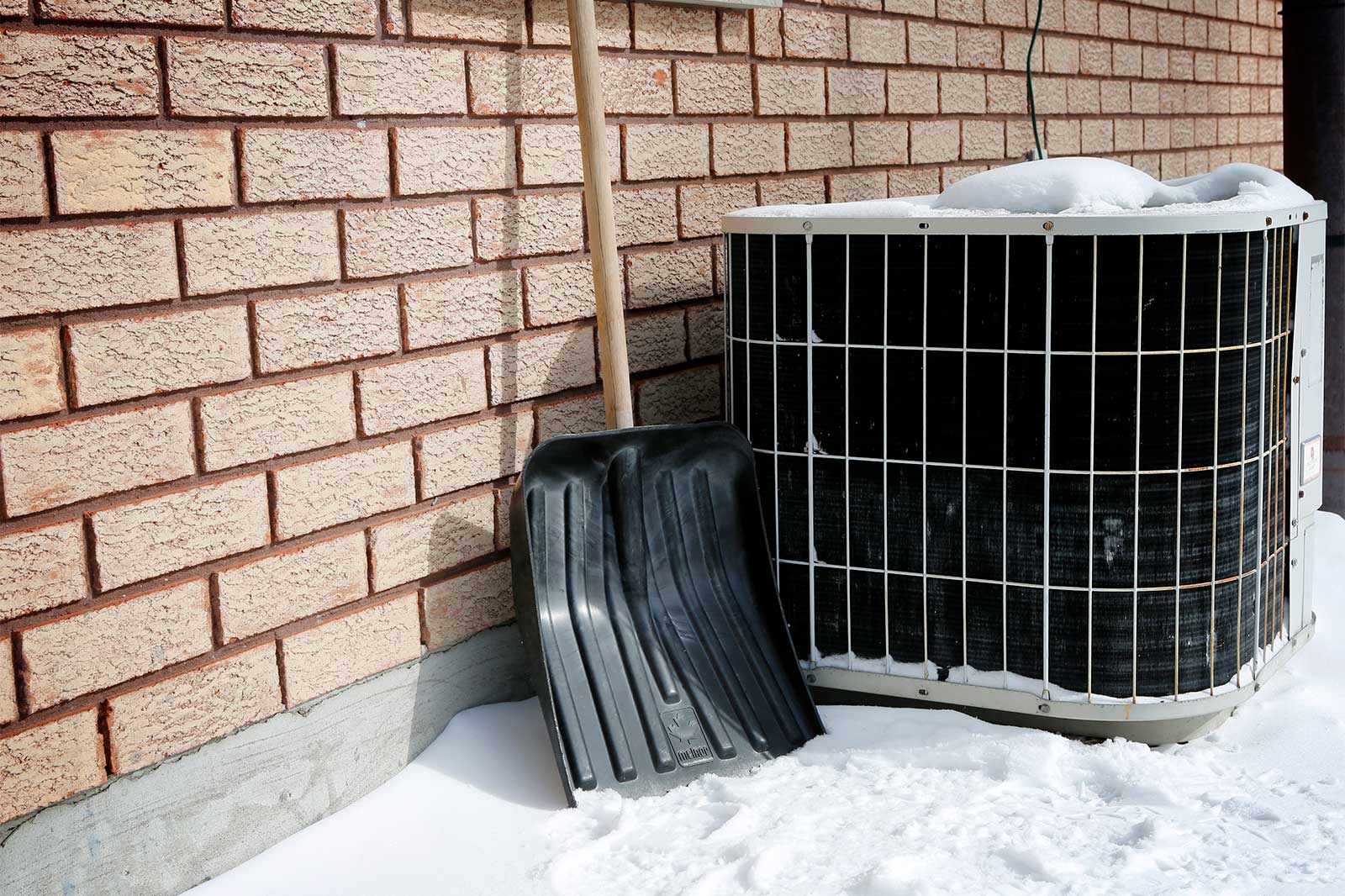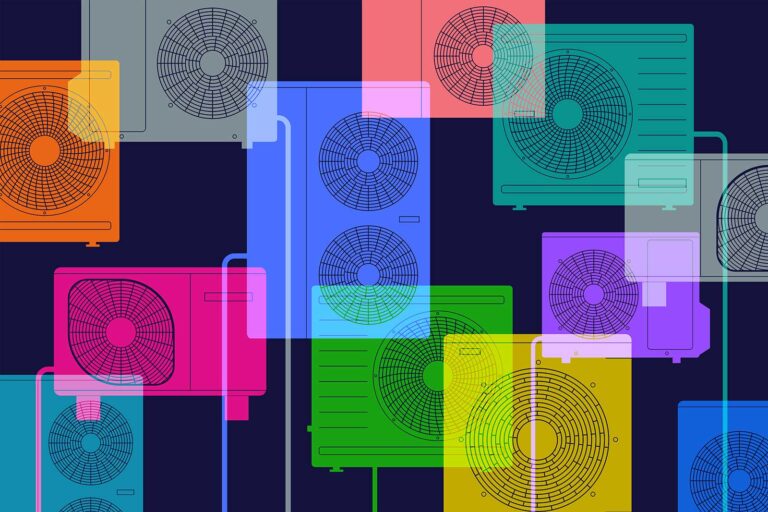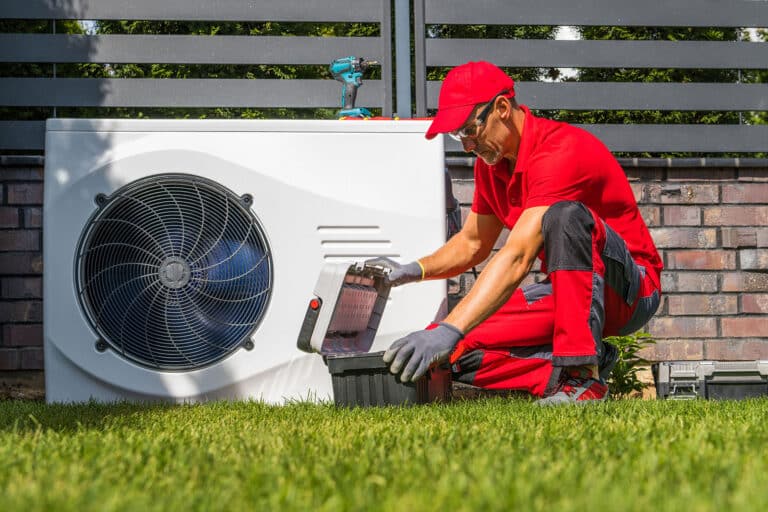How to Fix a Heat Pump Iced Up in Winter
Heat pumps make life during the winter months comfortable. However, ice can build up on your central air conditioning unit. You can put measures in place to prevent your heat pump from freezing.
When your heat pump is iced-up in the winter, it can be uncomfortable for the family. It’s essential to seek the service of a professional HVAC contractor to help you identify the problem with the heat pump and also fix it for you.
The compressors inside the HVAC unit power heat pumps through refrigeration. And the ice compressor runs smoothly when all conditions are right in the normal range.
How Does a Heat Pump Work in Winter and What Happens if it Freezes?
A heat pump works like the standard air conditioner unit in the summer. It takes warm air inside your home and dumps it outside. However, when the weather turns, especially during the winter, it takes warm air from the outside and brings it inside. So, how does a heat pump work in the winter, and what causes a heat pump to freeze up?
The heater pump uses an intelligent design component called a reversing valve. During the winter, the microprocessor uses the reversing valve to change the direction of the flow of the refrigerant through the compressor.
In cold seasons, the inlet pressure drops, causing the compressor to consume more energy. The heat pump has a variable speed compressor inside. This gives it infinite control of the capacity of heating and cooling.
Sometimes, however, you may find your heat pump freezing up in winter. This can happen for various reasons, so it’s important to understand how to keep the heat pump from freezing and what to do when the heat pump freezes up.
Why Is My Heat Pump Freezing Up in Winter? – Causes and Solutions
It’s fairly common to see some heat pumps freezing up in winter. It’s important to know how to fix a heat pump freezing up because if it continues for a while, it can increase your energy bills and cause some serious problems at home. Here are some reasons your heat pump keeps on freezing up during the winter.
Dripping water: Water vapor, snow, and rain can create an icy layer on top of the heat pump’s outdoor unit, which is expected considering the season. The heat pump’s defrosting unit usually handles the frozen layer on the outdoor unit, but if it fails or malfunctions it’s important to know how to defrost the outside AC unit in the winter.
Insufficient airflow: Insufficient airflow will cause the compressor coils to a lower temperature, which can cause a heat pump indoor coil freezing up in winter. Other causes of inadequate airflow include a clogged air filter or an obstruction in the ductwork.
Problems with the compressor: Motor failure can also cause the heat pump to malfunction, which is what causes ice buildup on the heat pump. If the compressor tears down because of a lack of maintenance on the heater, for some time, it can cause the compressor to lose its power to work efficiently.
Defrost mode failure: When the outdoor coil’s temperature gets too low compared to the outside temperature, the heat pumps quickly switch to the defrosting mode to melt the ice build-up.
However, things don’t always go as planned. If you find your heat pump frosting over, the defrost mode might not be working because of a bad outdoor fan motor, a defrost control or timer, or a stuck reversing valve. And when the defrost mode fails, the ice quickly builds up on your heat pump.
What to do When Your Heat Pump Freezes Up
There are many reasons your heat pump freezes during the winter. Here are some measures you can take if you notice ice on a heat pump in winter.
If your heat pump outside unit is covered in ice, you can turn off the heat pump and remove the ice on top. It is essential not to use any sharp object on the heat pump’s outdoor unit.
If your roof gutters are dripping water onto the heat pump, repair them to prevent this issue. Another thing you can do is to elevate the heat pump from the ground to prevent objects from getting inside to block the airflow. Remove all debris in the heat pump.
If you have a clogged air filter, you can seek the service of an experienced HVAC contractor to help you replace it regularly.
Signs of a Problem with an HVAC System
To help you identify when there is a problem with your HVAC system throughout the cycle of seasons, here is a list of common signs of problems with your heat pump:
How to Keep a Heat Pump from Freezing
One way to not have to worry “What happens if my heat pump freezes?” is to be proactive in ensuring your HVAC system works correctly before the winter months. Regularly maintaining your heat pump will make it run for many years. Here are a few steps to prevent your heat pump from freezing during the winter months.
Change the air filter regularly: Regularly changing the air filter will prevent clogs. We recommend changing the air filters at least once a month.
Keep the air vents open: It might tempt you to close them to lower your energy costs. But it can prevent airflow. This can cause ice build-up on the heat pump.
Clean the fan: It is essential to clean your heat pump fan to prevent debris from clogging inside. You should also keep the outdoor unit condenser coils clean.
Schedule a professional inspection: An HVAC expert will identify problems that you might miss with your heat pumps freezing up. It’s always important to schedule regular maintenance with an expert to help keep your HVAC system in shape for years to come.
Call One Of Our Professional HVAC Contractors
Looking for a professional HVAC contractor to help you fix the problems with your heat pump? Don’t wait until it all becomes an emergency. Blue Valley Heating and Cooling has a team of reliable HVAC experts with years of experience.
Call us and let us discuss how we can help you with your HVAC system.



